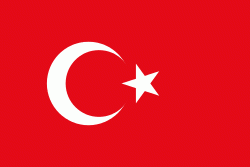Kadıköy
Kadıköy is an older settlement than most of those on the Anatolian side of the city of İstanbul. Relics dating to 5500-3500 BC (Chalcolithic period) have been found at the Fikirtepe Mound, and articles of stone, bone, ceramic, jewelry and bronze show that there has been a continuous settlement since prehistoric times. A port settlement dating from the Phoenicians has also been discovered. Chalcedon was the first settlement that the Greeks from Megara established on the Bosphorus, in 685 BC, a few years before they established Byzantium on the other side of the strait in 667 BC. Chalcedon became known as the 'city of the blind', the story being that Byzantium was founded following a prophecy that a great capital would be built 'opposite the city of the blind' (meaning that the people of Chalcedon must have been blind not to see the obvious value of the peninsula on the Golden Horn as a natural defensive harbour). The fourth ecumenical church council, Council of Chalcedon, was held there in 451 AD.
Chalcedon changed hands time and time again, as Persians, Bithynians, Romans, Byzantines, Arabs, Crusaders, and Turks passed through the area, which was badly damaged during the Fourth Crusade and came into Ottoman hands in 1353, a full century before Constantinople. Thus, Kadıköy has the oldest mosque in İstanbul, built almost a century before the conquest of Constantinople in 1453.
At the time of the conquest, Chalcedon was a rural settlement outside the protection of the city. It was soon put under the jurisdiction of the Constantinople courts, hence the name Kadıköy, which means Village of the Judge. In the Ottoman period, Kadıköy became a market for agricultural goods and in time developed into a residential area for people who would commute to the city by boat.
According to Ottoman estimations of 1882, the district of Kadıköy had a total population of 6,733, consisting of 2,695 Muslims, 1,831 Armenians, 1,822 Greeks, 249 Jews, 92 Latins, 28 Bulgarians and 16 Catholics.
Map - Kadıköy
Map
Country - Turkey
 |
|
| Flag of Turkey | |
One of the world's earliest permanently settled regions, present-day Turkey was home to important Neolithic sites like Göbekli Tepe, and was inhabited by ancient civilisations including the Hattians, Hittites, Anatolian peoples, Mycenaean Greeks, Persians and others. Following the conquests of Alexander the Great which started the Hellenistic period, most of the ancient regions in modern Turkey were culturally Hellenised, which continued during the Byzantine era. The Seljuk Turks began migrating in the 11th century, and the Sultanate of Rum ruled Anatolia until the Mongol invasion in 1243, when it disintegrated into small Turkish principalities. Beginning in the late 13th century, the Ottomans united the principalities and conquered the Balkans, and the Turkification of Anatolia increased during the Ottoman period. After Mehmed II conquered Constantinople (Istanbul) in 1453, Ottoman expansion continued under Selim I. During the reign of Suleiman the Magnificent, the Ottoman Empire became a global power. From the late 18th century onwards, the empire's power declined with a gradual loss of territories. Mahmud II started a period of modernisation in the early 19th century. The Young Turk Revolution of 1908 restricted the authority of the Sultan and restored the Ottoman Parliament after a 30-year suspension, ushering the empire into a multi-party period. The 1913 coup d'état put the country under the control of the Three Pashas, who facilitated the Empire's entry into World War I as part of the Central Powers in 1914. During the war, the Ottoman government committed genocides against its Armenian, Greek and Assyrian subjects. After its defeat in the war, the Ottoman Empire was partitioned.
Currency / Language
| ISO | Currency | Symbol | Significant figures |
|---|---|---|---|
| TRY | Turkish lira | ₺ | 2 |
| ISO | Language |
|---|---|
| AV | Avar language |
| AZ | Azerbaijani language |
| KU | Kurdish language |
| TR | Turkish language |















